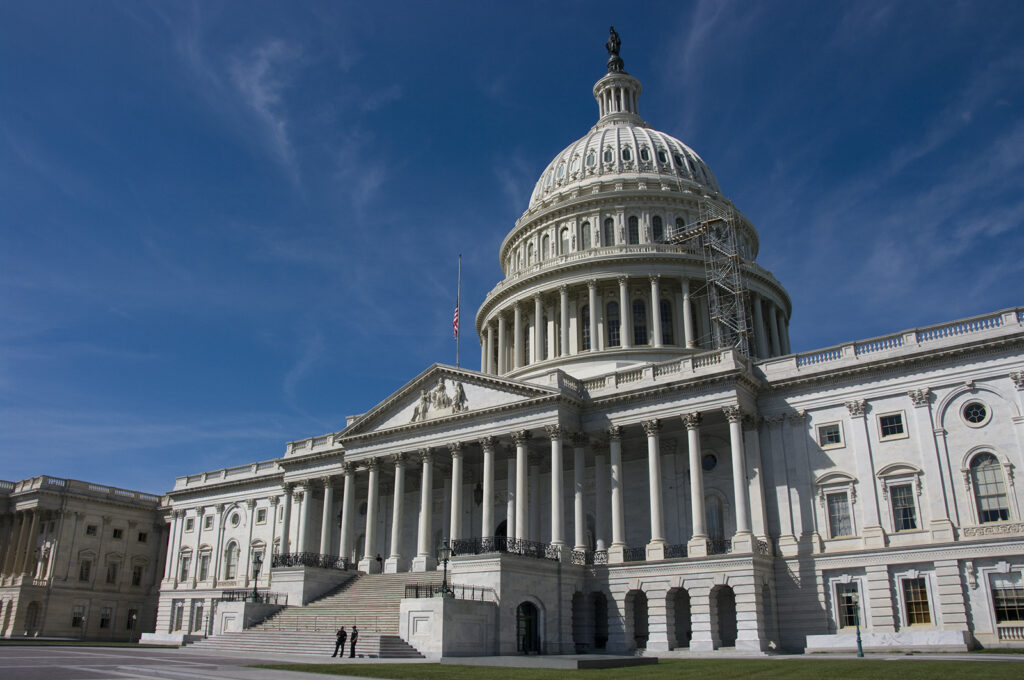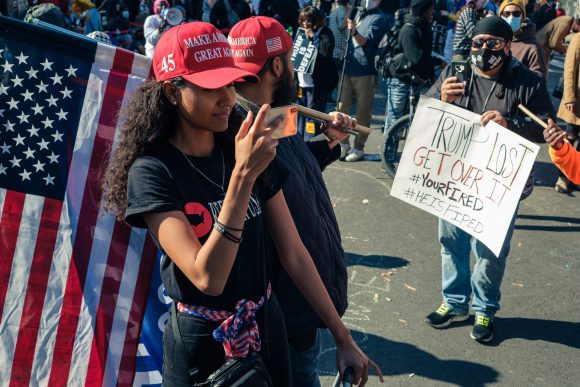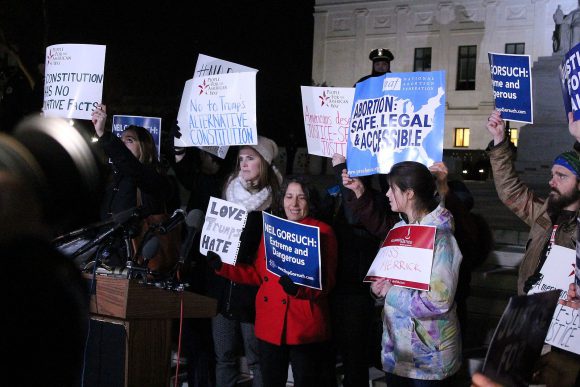The US transfer of power: How to mend divides through inclusive democracy

Yesterday, the US welcomed a new President and Vice President into power. NIMD’s Senior Advisor Strategic Relations, Heleen Schrooyen, and Communications Officer, Emanuela Campbell, explore how the new administration can start to mend divides.
On 6 January 2021, the world watched as violent swathes of protesters stormed the US Capitol. As thousands of people rammed their way into the country’s most recognized symbol of democracy, it was blatantly clear that something had gone wrong in the US.
People are angry. Their anger was sparked by Donald Trump’s claims of election fraud; it was fueled by his divisive rhetoric; and it culminated in the violent riots for which the President was impeached.

But, underlying that anger, there are also feelings of disempowerment and underrepresentation. Feelings which Trump stoked and exploited for his own political gain. The people who stormed the Capitol may feel represented by Trump, but they do not feel represented by their political system and their democracy as a whole.
So how can the US improve, as it moves into a new presidency? How can it learn from the exclusion felt by parts of its population, and use these learnings to create a less divided, and more inclusive society?

An opportunity to be critical
The coming term will provide an opportunity for leaders in the US to critically reflect on their democracy. Politicians and society alike will need to consider what went wrong and to start to build on their democracy, making it stronger and more inclusive.
That should start with looking at the political system. It is time to consider what parts of that system work to uphold democratic ideals, and what parts serve instead to fuel polarization and exclusion.
The high cost of running for elections in the US, for example, shuts the vast majority of the population out of politics entirely. For almost all Americans, the idea of making their voices heard through politics is a far-off reality.
There will also need to be more clarity around the responsibility of individuals and institutions to stand up for their values and hold each other to account. Political parties should work out what behaviours they are willing to stand behind, and set limits on the politicians who represent them.
Because polarization and exclusion don’t come out of the blue. They are sustained by people who aim to benefit from the exclusion of others, and from a divided society.

It is a political choice to focus public discussion around the country’s most polarizing issues. Conversations around topics such as abortion and the right to bear arms, for example, have deep historical and ideological roots.
Differences of opinion on loaded topics are inevitable: they have always existed, and always will. But these differences have been weaponized and exploited for individual gain. And tools such as social media are being used to fuel polarization.
Instead of contributing to a culture of polarization, politicians can choose to enter into dialogue with the people, to find areas of commonality and work towards shared goals.
US leaders have an unprecedented chance to listen to the public and their concerns; to create a more open relationship, where people are not shut out of politics, but rather understand the mechanisms that are available to them if they want to take part in the decisions that affect them.
In short, they have an opportunity to work towards a more inclusive democracy.
Why inclusive democracy?
If we want inclusive societies, we have to start with inclusive democracy.
Inclusive democracy is, of course, about having a voice. It’s about each and every person within that democracy having the chance to get involved in politics if they want to.
But democracy also goes beyond access to politics.
When democracy works, it means that politicians can focus on the good of the people – passing policies which foster equality and equal access to opportunity within their societies.
Inclusive democracy means having a wage that you can live from. It means decent education for all, access to health care, social mobility, and equal rights for men and women, for black people and white people.
Real inclusive democracies deliver results. And they function for everyone.
Don’t take democracy for granted
The problems leading to the storming of the Capitol are by no means exclusive to the US. No democracy in the world is completely inclusive. The kind of democracy that underpins real equality is an ideal that we, as NIMD, strive for in all our programmes.
As we saw in the US, when people are left behind, there is a tangible threat to the peaceful societies that we tend to take for granted, especially in more established democracies.
The situation in the US shows us that even the oldest democracies are not immune. No country is. That’s why we must not take democracy for granted.
There are cracks in all our democracies. It’s up to political actors and leaders to start to mend those cracks by embracing democratic values and striving for a more democratic political culture; by entering into dialogue with their voters; and by working across party lines towards a more inclusive political system.